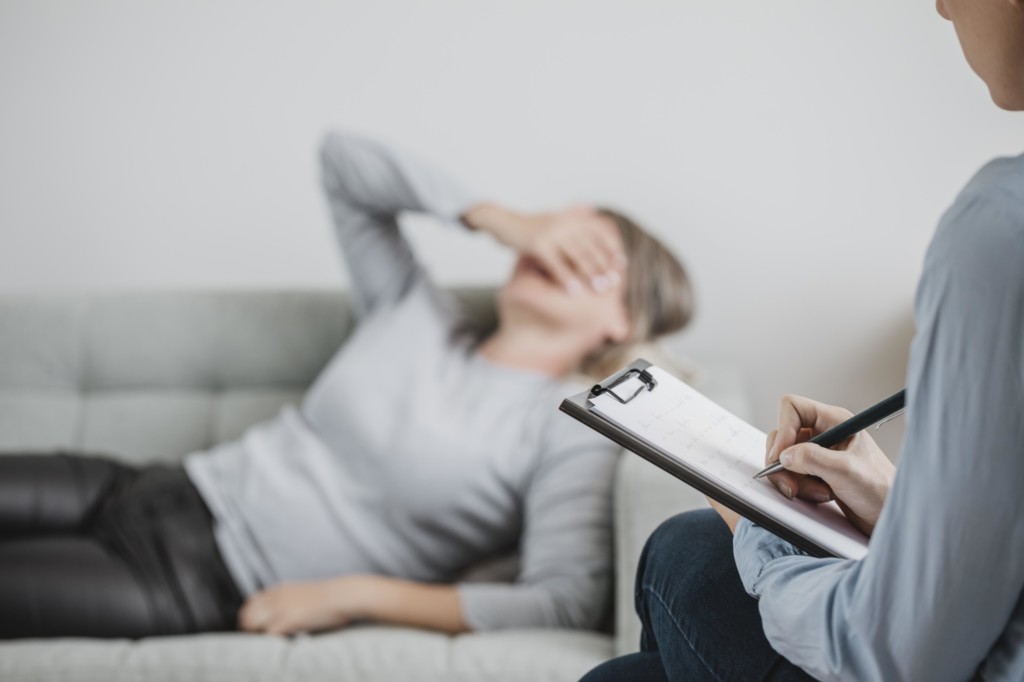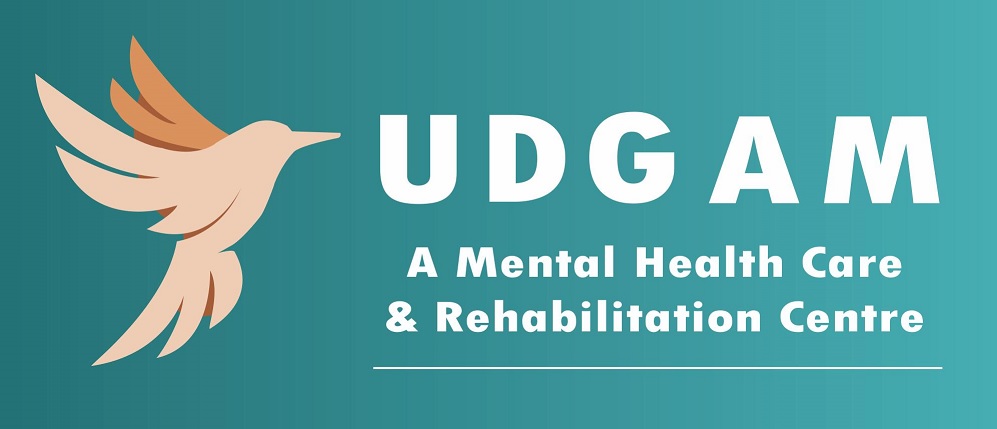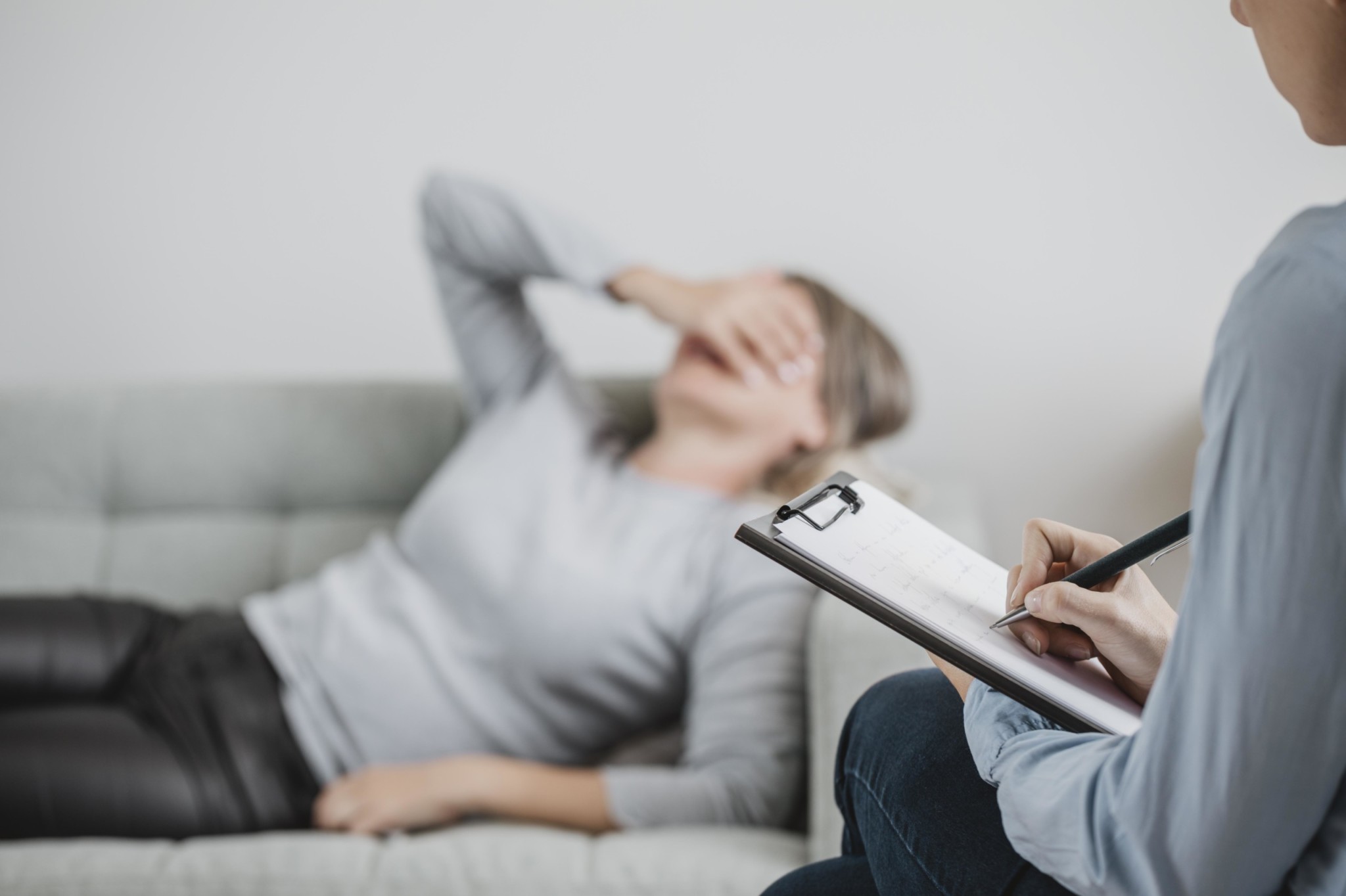
SPEAKING TO FRONTLINE MENTAL HEALTH WORKERS
TWO MENTAL HEALTH PRACTITIONERS EXPLAIN THEIR EXPERIENCE OF WORKING IN THE FRONTLINES DURING THE COVID-19 PANDEMIC
Mental health is an essential component of wholesome health and yet it is rarely talked about. Rendered invisible and used sparsely in the conversations, its moorings with stigma, shame, misconceptions and an arsenal of such connotations, frequently pose a hindrance in acceptance. The Covid-19 pandemic has exacerbated the state of mental health affairs at various levels – micro and macro, individual and collective.
“The strict lock-down, curb on mobility, a multitude of restrictions, never-ending stream of work, uncertainties among a host of other factors have contributed to a shift in emotions and have led to mental discomfiture.”
The strict lock-down, curb on mobility, a multitude of restrictions, never-ending stream of work, uncertainties among a host of other factors have contributed to a shift in emotions and have led to mental discomfiture. With the caseload touching an average of 80,000 every day, a news cycle that can be fittingly described as negative and toxic, and our tendencies to doom scroll on social media, has resulted in our mental health taking a toll like never before.
This shift is increasing our susceptibility towards a variety of emotions like panic, anger and gloom. As helplines continue to ring off the hook, and emotions run on the edge and extremes, the mental health experts (who are also Covid-19 front-line workers) continue to battle issues and emotions of their own.
“The parallel pandemic of mental health is very much real and occurring as we speak, on a minute by minute basis, and it cuts much deeper than our understanding.”
The parallel pandemic of mental health is very much real and occurring as we speak, on a minute by minute basis, and it cuts much deeper than our understanding. Speaking to Bol Magazine, two experts share their insights on learnings, unlearnings and explain what it takes and means to be a mental health expert during the Covid-19 pandemic.
Dr Rajesh Kumar: Founder & Director UDGAM (a mental healthcare & rehabilitation centre) and Consultant Psychiatrist and Psychotherapist at MAX Super-specialty Hospital, Delhi, says: “This pandemic has affected all professions and age groups, including psychiatrists. In our profession, we have detailed discussions with the patient so covering the mouth and the nose is a must. An increasing number of patients were seen in private OPD rather than in a hospital set-up. On the one hand, patients were increasing, at the same time psychiatrists were at the risk of exposure.”
“Negative thoughts, anxiety symptoms and depression were more prevalent among patients and these symptoms were affecting the practitioners as well. Mental health cases have been on the rise, and psychiatrists and psychologists have been visiting hospitals despite the risks involved.”
“Negative thoughts, anxiety symptoms and depression were more prevalent among patients and these symptoms were affecting the practitioners as well. Mental health cases have been on the rise, and psychiatrists and psychologists have been visiting hospitals despite the risks involved. Although they attend counseling sessions in Covid wards, psychiatric patients remain very uncooperative and very vocal, increasing the risk of disease spread through droplets. Many do not follow protocol medicine intake and other methods to prevent infection. Such behavior increases the risk of getting infected from them. Uncertainty, anxiety, negative thoughts of patients related to job loss, financial loss, death, health-related issues have also been affecting mental health professionals.”
“Covid patients at isolation wards in indoor set-ups have been frequently seeking face-to-face counseling or consultation by psychiatrists. As Covid patients were seen more in government hospitals, health professionals there were experiencing more burn-out than those in privately-run hospitals. Many patients are worried about infection, job loss, financial loss, and staying away from the family. Several have suffered from panic attacks and depression. Fear, sadness and irritation were common, varying from mild to severe.”
“Online psychiatric consultation, a new model in mental health care, is helping lots of people suffering from emotional illnesses and has also reached the rural population apart from serving the urban. Patients who shun visits to the psychiatrist are also benefiting from this new normal line of treatment.”
“Online psychiatric consultation, a new model in mental health care, is helping lots of people suffering from emotional illnesses and has also reached the rural population apart from serving the urban. Patients who shun visits to the psychiatrist are also benefiting from this new normal line of treatment. Online audio or video calls, zoom meetings are some of the methods that are helping large sections of the population in identifying, treating and preventing mental illnesses. Keeping updated on knowledge about the infection and following proper preventive guidelines are the first step in making the health professional calm. Sound sleep, following a proper daily routine, spending time with family, exploring hobbies, book reading, mindfulness practice are some of the healthy ways to keep calm during the time of the Covid pandemic.”
Dr Anju Sharma: Doctor, International Speaker, Wellness-Holistic Coach and Founder of Musical Healing Band, “Sound of Infinity” explains: “Pandemic has impacted the mental health of mental health experts very badly. Nowadays, people are acknowledging every single emotion. When the pandemic started, it was easy to make people understand to wear the mask and follow the precautionary measures. But due to economic reasons, people must work and step out of their house. This makes it difficult to ensure safety and the frustration level is overtaking the stress.”
“The mental health of both mental health care as well as a physical health care expert has been impacted more than the normal citizen. Above all these, the main issue is we are not getting time to express or heal ourselves. As health experts, we are more worried about others and the worrying part is the ratio of a doctor and patients, which is- 1:3000. So, the condition is not good.”
“As a health care expert, we visit the hospital when many cases come. When we come back home, people maintain distance. The mental health of both mental health care as well as a physical health care expert has been impacted more than the normal citizen. Above all these, the main issue is we are not getting time to express or heal ourselves. As health experts, we are more worried about others and the worrying part is the ratio of a doctor and patients, which is- 1:3000. So, the condition is not good.”
“Initially, I used to come across stories of domestic violence, suppression. When the pandemic started affecting the jobs and businesses, the cases regarding work and money related issues were more. These days, people are so stressed and are least bothered about relationships and virus. The only thing they are worried about is how their life will go forward. All these have made frustration as a predominant emotion.”
“if you see the health care professionals, they are spending the entire day in their PPE kit to keep the virus at bay. In our job, we have to meet new patients every day, and we must treat them while being unaware of their Covid-19 status.”
“A lot of awareness camps and seminars regarding mental health support are going on. People are talking about it on different platforms and are acknowledging their mental issues as well. It has its negative side also, that is, people are being more scared about diseases that did not exist earlier but prevails now. As health experts, we don’t have time to express our emotions and feelings and can’t even take a day off to rest. The lockdown was considered as a vacation time by the people. Even after the unlock phases, people are stepping out to visit restaurants and shopping, and the worst part is some of them are avoiding wearing masks stating the difficulty in breathing as a reason. But if you see the health care professionals, they are spending the entire day in their PPE kit to keep the virus at bay. In our job, we have to meet new patients every day, and we must treat them while being unaware of their Covid-19 status.”
“After all the day’s work, we go back to our family and expose them to the risk of getting infected. Secondly, there is a lot of workload and because of the lack of resources, we are doing almost all the work with no family time. This impacts our family relationships. The other thing is if we get a normal sore throat, we must quarantine ourselves to protect the others around us. All these are making the doctors silent and aggressive at the same time. We too are on the same scale of emotions as any other human being. I believe sound therapy has had a wonderful impact on the mind, body, and emotion. I keep myself calm through sound. Do not stress over thinking about the future. Try to make the best out of the present time and work on what makes you happy. I am following the same.”
“A 2017 survey by World Health Organization (WHO), points out staggering cases of depression and anxiety in India. A year before that, a global health study conducted by Lancet placed suicide as the prime cause of death among Indian population, in the ages, 15-39. The recent figures, too, are far from encouraging. According to a 2019 study by Mental Health Research UK, 42.5% of Indian corporate workforce suffers from depression and other mental health concerns.”
“The WHO pegs such economic losses at 1.3 trillion USD (exclusive of GDP shrinkage and rising cases due to pandemic) over a period of 2012-2030. In a recent interaction, a WHO official was quoted saying, ‘We think that mental health is a forgotten aspect of Covid-19’.”
The concerns of such nature further translate to economic loss. The WHO pegs such economic losses at 1.3 trillion USD (exclusive of GDP shrinkage and rising cases due to pandemic) over a period of 2012-2030. In a recent interaction, a WHO official was quoted saying, “We think that mental health is a forgotten aspect of Covid-19.” In a nutshell, the conversations around mental health continue to remain invisible, and its access limited. But, mental health is very real, and it’s time we start normalizing it.




